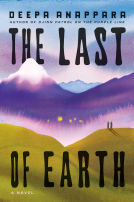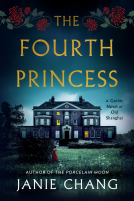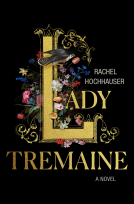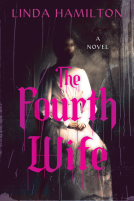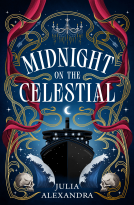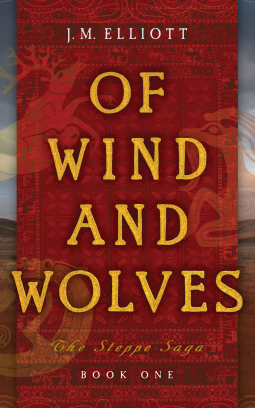
Of Wind and Wolves
by J. M. Elliott
This title was previously available on NetGalley and is now archived.
Send NetGalley books directly to your Kindle or Kindle app
1
To read on a Kindle or Kindle app, please add kindle@netgalley.com as an approved email address to receive files in your Amazon account. Click here for step-by-step instructions.
2
Also find your Kindle email address within your Amazon account, and enter it here.
Pub Date Sep 01 2025 | Archive Date Nov 30 2025
Description
When Anaiti reluctantly agrees to marry the aging king of the Skythian nomads to forge an alliance, she never expects the price of peace will be an enemy’s scalp—or that she’ll have to take it with her own hands.
Trained since youth in riding and archery, her education was cut short, and she's never faced true combat. Though she has no taste for bloodshed, her desire to remain free outweighs her fear. Thrown into the lawless wilderness, she joins a ruthless warband whose loyalties and suspicions are as fierce as the unforgiving steppe. There, her skills and courage are tested to the edge, and she forms an intense bond with their commander—a formidable warrior who believes Anaiti possesses a rare gift. Determined to evade her fate, Anaiti devises a daring plan to stay with the warband. But as her defiance threatens the pact between kingdoms, she must decide if her longing for freedom is worth the cost—of countless lives, perhaps her own.
Of Wind and Wolves is the first volume in The Steppe Saga, a haunting and subversive retelling of events recorded by Herodotus. Set against a backdrop of astonishing beauty and brutality, it reveals the lost wisdom, traditions, and beliefs of the Scythian people, whose powerful women once inspired Greek myths of the Amazons.
Advance Praise
A gritty, entertaining, and intriguing mix of history and fantasy, with a formidable female lead. . . . Our Verdict: GET IT.—Kirkus Review (Recommended Review)
A historical novel of extraordinary complexity set against a harsh background of tribal warfare, love, and survival.—Foreword Clarion Reviews (Five stars)
Of Wind and Wolves is a story of truly epic proportions, spanning vast distances both geographically and metaphorically. . . . Elliott has taken a fable and crafted an epic.—Independent Book Review
Brutal, poetic, and unforgettable. . . . A haunting, vivid read that lingers long after the final page.—The Prairies Book Review
Available Editions
| EDITION | Ebook |
| ISBN | 9781966394020 |
| PRICE | $4.99 (USD) |
Available on NetGalley
Average rating from 10 members
Featured Reviews
 Educator 1565582
Educator 1565582
J.M. Elliott's Of Wind and Wolves, the first novel in The Steppe Saga, is a historical epic that beautifully combines mythology and history with a captivating heroine's journey. Anaiti is betrothed to an elderly Skythian king in order to cement a political alliance, but in order to secure it, she must first kill an enemy and present their scalp. This rite of passage forces Anaiti into the wilderness alongside a formidable warband and throughout her struggle for survival, she navigates conflicting loyalties, independence and sacrifice. I found this novel to be exquisitely written, well-researched and extremely immersive. Elliott's prose is evocative and really brings the setting to life
 M. V. M, Reviewer
M. V. M, Reviewer
Of Wind and Wolves is the story today’s historical fiction genre doesn’t know it needs. Where the current market is saturated with trendy tropes, cookiecutter storylines, and sociopolitical parables, the Steppe Saga offers something unique: a thoughtful and deeply researched exploration of a little-known ancient culture, told through the lens of a heroic and humanistic fictional narrative.
Ancient civilizations receive sparse treatment in fiction nowadays, and so much rich story potential goes untapped. It was refreshing to open this book knowing very little about the Scythians and come away educated and enlightened. By no means a light read, Of Wind and Wolves is densely packed with information, yet it flows naturally, driven by story and character, and doesn’t overwhelm. The writing is elegant and noticeably superior to that of current traditionally published books. If a few similes seemed overwrought, mostly in the first half of the book, I was willing to forgive them. The descriptions are evocative, and the dialogue, at times poetic in the manner of an ancient text and other times raw and even vulgar, felt balanced and realistic—something that can be difficult to achieve when writing characters who would have been speaking in an ancient language.
The story is told entirely in first-person, through the eyes of an Amazon (or “hamazon”) warrior. Here, at last, is a “strong female character” who stands simply, unaffectedly, on her own merits, without the sense of an agenda being shoved down the reader’s throat—and most importantly, without being “strong” only at the expense and demonization of every male character in the story. In fact, the narrator is the only major female character in the book—though it took me some time to notice, as I was too engrossed in the story to tally up quotas. She is surrounded by men, some of whom are horrible, and some are heroic. Imagine that—a fair and balanced portrayal of human beings.
While the book is by no means a romance, it features a love story, of the kind that at times feels worthy of being called “epic.” Neither soapy nor overly jaded and cynical, it evolves naturally as the characters grow closer.
I can appreciate the author’s effort to portray the Scythian culture in an objective, non-judgmental way, and I made an attempt to keep a similarly open mind. To the good, I feel the portrayal is probably a realistic picture of what the Scythians might have actually been like, and the author’s enthusiasm for the subject, especially the horsmanship aspect, is evident.
It’s inevitable, though—and natural—that readers will bring their own values into play in the judgment of any work of art, and for this reason I was never able to connect fully with the Scythian culture in this book. There is a great deal of animosity portrayed against the Greeks, whom the Scythians consider effeminate, dishonest, and promiscuous. To their eyes, trade and mercantilism is suspect, and urban civilization is inferior to the nomadic way of life. No doubt this is an accurate portrayal of how the Scythian people really felt about the Hellenic influence, but as one who admires the contributions of Greco-Roman civilization, I could not relate or agree. There was a certain irony in one character’s comment about “Hellenes who came north from the colonies long ago to get rich off the spoils of trade,” since the profits of freely conducted trade are by definition not “spoils”—in fact, the very antithesis.
I sensed an effort to ascribe a certain nobility and idealism to the Scythians—though neither is the brutality and warmaking glossed over by any means—but I wasn’t convinced. While I appreciated the Scythian “side of the story,” my sympathies and preferences naturally still lie with the culture that valued, at least in theory, trade over pillage, logic over violence, enlightenment over superstition.
Another reason I did not rate this higher was a somewhat disappointing ending. I did not agree with one character’s decision and felt that plot point might have been eliminated altogether, considering its outcome. Perhaps it will be relevant later in the trilogy. Also, a character’s commitment to another, which had seemed unbreakable up to that point, suddenly weakened. This felt like a let-down, and in general the book seemed to end on a downbeat. I’m hopeful this might be resolved in the next installment.
I look forward to seeing how the story continues to play out over the next two books and would gladly read more of this inspired author. I also highly recommend her newsletter, which I found thought-provoking and informative.
Of Wind and Wolves follows the journey of Anaiti as she must wed the Skythian king to forge an alliance to help her tribe. Before she can marry, she must prove herself by collecting her ‘tally’- the scalp of an enemy she has defeated in battle. As a trained hamazon, she is no stranger to horsemanship and archery, but she has never taken a human life. This journey will be her ultimate test as she travels with a Skythian warband to complete her mission.
This story blew me away! The descriptions of the steppes were truly beautiful and I was immersed as I watched Anaiti engage with Skythian culture. Her character arc was complex and watching her struggle with her morality, assumptions, and womanhood was very satisfying. Her story is dark, bloody, and full of feminine rage. There are also elements of magic and romance that fleshed out the story without taking over the focus. This is the kind of historical fiction I didn’t know I needed. This is the first in a trilogy and I’m dying to read the next book.
“How could I ever know my true fate unless I followed this road to its end?”
I was amazed by this book, and I ended up getting entirely engulfed in this universe created by J.M. Elliott. The world building and complex dynamics created a cinematic feeling, and everything on the page played like an action-packed film in my mind. I do feel torn on the main character as I found her frustrating and confusing on several occasions, though the role she played in the course of the story was extremely compelling. I was beyond impressed by Alric’s development in this story as well. I cannot wait to read the next book when it comes out. 🐺
Thank you to NetGalley and Warden Tree Press for sharing this ARC in exchange for my full and honest review!
Readers who liked this book also liked:
Anna Kovatcheva
General Fiction (Adult), Historical Fiction, Women's Fiction
ReShonda Tate
General Fiction (Adult), Historical Fiction, Multicultural Interest


